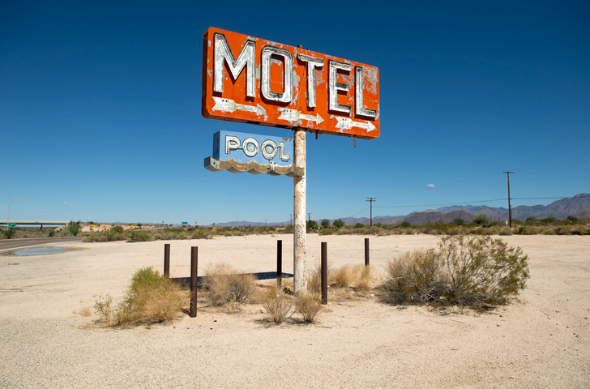Hotel or motel? Hotel vs motel. It’s a question and comparison that both guests and hoteliers ponder.
Just as guests need to make a decision about which type of accommodation suits their needs, hoteliers need to think carefully about the differences between motels and hotels and select the category their property falls into when marketing their small business.
Here, we look at the key differences between hotels and motels, what types of guests each appeal to and how to use this difference to market your property successfully.
What’s the difference between a hotel and a motel?
A small hotel and a motel might sometimes be confused. And while the lines are blurring, there are still some key differences between these categories of property. Let’s start with the definitions.
The definition of hotel tells us that it’s “a commercial establishment offering lodging to travellers and sometimes to permanent residents, and often having restaurants, meeting rooms, stores, etc., that are available to the general public.
The definition of motel, on the other hand, tells us that it is “a hotel providing travellers with lodging and free parking facilities, typically a roadside hotel having rooms adjacent to an outside parking area or an urban hotel offering parking within the building.”
This means motels – originally known as motorist hotels – are often located conveniently, rather than a more attractive locale. Motels will generally have only one or two floors while hotels may be high-rise.
Motels will also generally have less features and more limited food and beverage offerings. There’ll be fewer staff and a smaller number of specialised staff. And this generally translates to lower rates for guests.
Leading examples of a small hotel and a motel
The QT Hotel in Newcastle, Australia, offers more than just lovely rooms and a range of amenities, promising “muted bronzes and rich ochre tones pay homage to Newcastle’s steel-city heritage, and an Italian-born, Michelin-starred chef whips local produce into haute cuisine wonders.”
Meanwhile, if you stay in Australia but head way down south into Victoria, the Yackandandah Central is a great example of a modern motel. It’s located in the centre of town and comes with a fully-stocked kitchenette. The hosts are listed by name on the website and every car is given a complimentary windscreen clean before getting back on the road – a lovely nod to the very essence of a motel.
Why do travellers choose them?
The differences between motels and hotels means they appeal to different types of guests.
Travellers who choose motels
Convenience and price are two important drivers for motel guests. Those who want to avoid the formality of staying at a hotel might also opt for motel accommodation, too.
Travellers who choose hotels
Small hotels generally offer a wider range of facilities and amenities, such as restaurants, room service and a swimming pool. Hotels therefore appeal to those who want to be a little more comfortable and pampered during their stay.
How does your marketing change if you are a hotel vs a motel?
Marketing your property effectively is all about clearly defining – and then appealing to – your ideal guests. So given what we know about the types of travellers who choose motels vs hotels, it follows that these differences will be important in formulating your marketing strategies.
A motel might emphasise their convenient location and layout on their website. Meanwhile, a nearby hotel might be boasting about the relaxation benefits of a stopover that includes an on-site restaurant, gym and pool.
Of course, the unique features of your particular motel or hotel will also help determine your target audience and guide your marketing plans.

By Dean Elphick
Dean is the Senior Content Marketing Specialist of Little Hotelier, the all-in-one software solution purpose-built to make the lives of small accommodation providers easier. Dean has made writing and creating content his passion for the entirety of his professional life, which includes more than six years at Little Hotelier. Through content, Dean aims to provide education, inspiration, assistance, and, ultimately, value for small accommodation businesses looking to improve the way they run their operations (and live their life).
Table of contents
“It's been a huge time-saver for me. It's convenient to swipe through all the rooms and make a new booking. I'm having a fantastic time with it.”
Operational Manager, Samui Bayside








